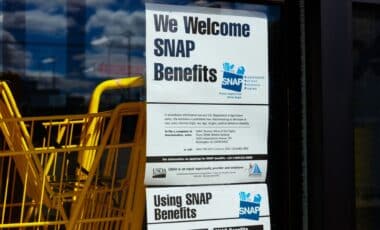The Department for Work and Pensions (DWP) has published important details about payment schedules for Universal Credit, pensions, and other benefits as the UK grapples with ongoing economic challenges. With inflation eroding disposable incomes and household costs reaching record highs, understanding the available support mechanisms is crucial for vulnerable groups. This article outlines the key payment dates for December 2024, alongside other financial aids that can alleviate the burden for struggling households.
Payment Schedules for December 2024
In December 2024, most benefit payments will follow their usual schedules, providing a sense of stability for recipients during the holiday season. Payments for Universal Credit, state pensions, child benefits, and other key benefits like Disability Living Allowance (DLA) and Personal Independence Payment (PIP) will be disbursed on their standard dates unless otherwise affected by public holidays. Notably, Christmas Day, which falls on December 25, will cause payments scheduled for that day to be issued a day earlier, on December 24. This ensures that recipients have access to their funds in time for holiday preparations.
Beneficiaries are encouraged to confirm their payment details well in advance through the government’s official website or their local DWP offices. Missing or delayed payments, particularly during a period of heightened financial stress, could disrupt essential spending for affected households.
Inflation and Cost-of-Living Challenges
Inflation continues to weigh heavily on UK households, with October 2024 witnessing a rise to 2.3%, the steepest increase in two years. While this figure remains below some of the extreme peaks seen in previous years, it still surpasses wage growth, leaving many households with reduced purchasing power. Essential items, including groceries, fuel, and energy bills, have seen significant price increases, exacerbating the strain on low-income and vulnerable groups.
The government has taken steps to address these challenges. Labour’s first Budget in October 2024 introduced a 6.7% increase in the national living wage, bringing much-needed relief to some working households. However, the rise in benefits, pegged at 1.7%, has been criticized as insufficient to keep up with the higher cost of living. Research from the Joseph Rowntree Foundation projects that, without further interventions, an additional 100,000 children and 300,000 adults could fall into poverty by 2029.
Moreover, Labour’s decision to scale back the winter fuel payment for pensioners, a long-standing measure to assist with heating costs during the colder months, has left many elderly individuals particularly vulnerable. The removal of this £200-£300 payment will make it the first winter in decades where many pensioners will face rising energy bills without direct government support.
Additional Financial Support Available
To mitigate the effects of the cost-of-living crisis, several programs and schemes are in place to provide financial relief. Households should actively explore these options to ensure they are not missing out on critical assistance.
Household Support Fund (HSF)
The Household Support Fund (HSF), initially introduced by the Conservative government, has been extended by Labour until the end of March 2025. This fund allocates financial resources to local councils, which then distribute the funds to vulnerable households based on regional needs. Assistance varies by council, ranging from cash grants to supermarket vouchers and support for energy bills. Families experiencing acute financial distress should consult their local council’s website to determine what specific aid is available in their area.
Budgeting Advance Loans
For recipients of Universal Credit, the DWP offers budgeting advance loans to cover unexpected or emergency expenses. These loans, which are interest-free, can be critical for those facing sudden financial shortages. The maximum repayment period for these loans is two years, and the amount one can borrow depends on individual circumstances. Single individuals can borrow up to £348, couples can access £464, and families with children are eligible for up to £812. Starting in April 2025, a new cap will reduce the maximum allowable deductions from benefits to repay such loans from 25% to 15%, providing some breathing room for beneficiaries already struggling with limited finances.
Charitable Grants and Energy Assistance
Charities such as Turn2us offer grants to individuals facing specific challenges, including illness, unemployment, or bereavement. While these grants often come with eligibility criteria, they provide a critical lifeline to those in desperate need. Energy suppliers like British Gas, EDF, and E.ON also offer support programs, including grants to help cover bills. For example, British Gas provides grants of up to £2,000 to customers of any provider, offering a significant cushion for households struggling with rising energy costs.
Other Forms of Aid
Additional forms of aid include the warm home discount, a one-time £150 reduction on electricity bills, and council tax reductions, which can cover up to 100% of council tax for eligible individuals. Both programs are tailored to assist low-income households and those receiving specific benefits. Families with young children can also access up to 30 hours of free childcare per week for children aged 9 months to 4 years, a program recently expanded to support working parents.
Benefit Adjustments in 2025
In a move to align with the September 2024 Consumer Price Index (CPI) figure, the government will implement a 1.7% increase in all working-age benefits starting April 7, 2025. This adjustment applies to benefits such as PIP, DLA, attendance allowance, and carer’s allowance. While the increase reflects standard annual adjustments, many advocacy groups argue that it falls short of addressing the broader financial challenges faced by low-income households, especially given that inflation has outpaced these adjustments for much of the year.
Energy Price Cap and Its Impact
Ofgem’s energy price cap, which limits the maximum amount suppliers can charge per unit of energy, has risen by 10%, from £1,568 to £1,717 annually for households on standard variable tariffs. This increase, effective from October to December 2024, reflects higher wholesale energy costs and is expected to add further strain to household budgets as winter progresses. The cap, though intended to protect consumers from excessive charges, has been criticized for not addressing the underlying affordability crisis in the energy market.










When does the pensioners £200. go into the bank accounts